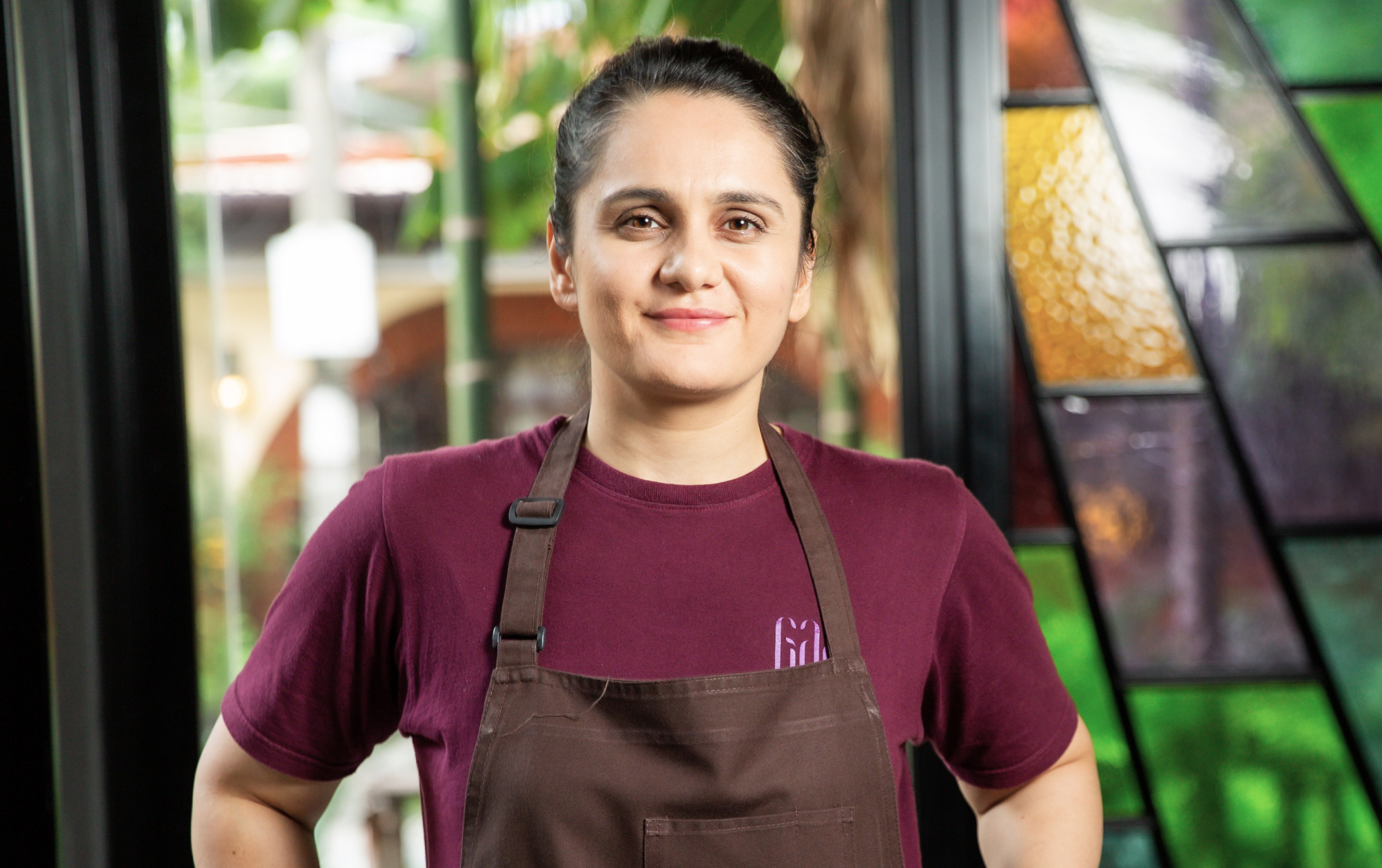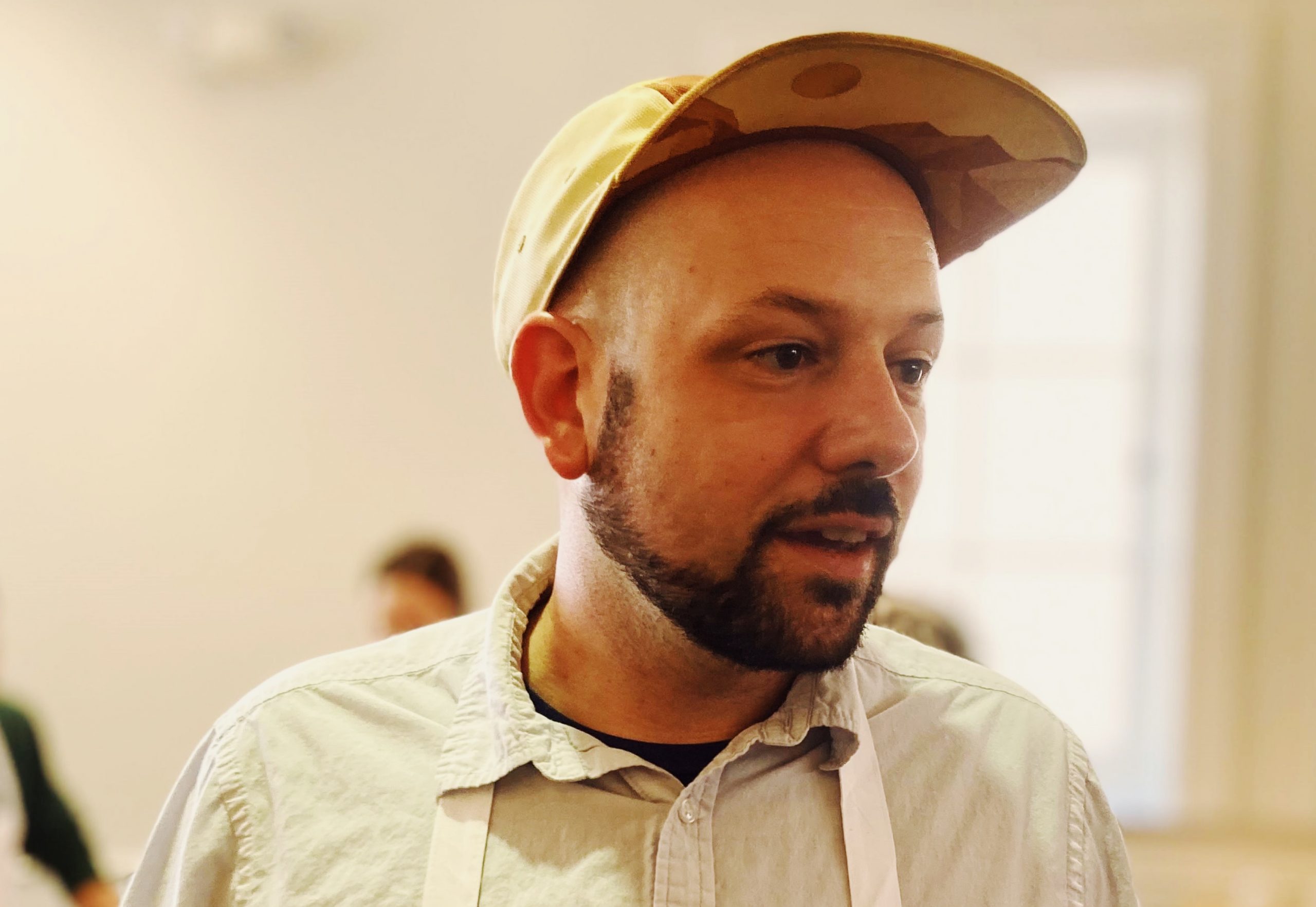5 Questions with Karyn Tomlinson
Each month, Digest interviews one of MAD Academy’s alumni. First up, chef Karyn Tomlinson, who worked at TK in Minneapolis and Fäviken in Sweden before opening her first restaurant, Myriel. Two years later, Myriel has already become a semi-finalist for the James Beard Best Restaurant in the Midwest. Among other things, we talk to Karyn about the importance of recognizing cognitive difference in your staff, and how, when it comes to cleaning, it can be worthwhile to chill ever so slightly out.
When Karyn Tomlinson boarded a plane to Copenhagen to attend MAD Academy in October 2021, things were going so smoothly at Myriel, the restaurant—her first— she had just opened in Minneapolis three months earlier, that she almost wondered if the leadership course wouldn’t be a waste of time. But it wasn’t long after she returned that the course proved its worth. “There is so much excitement and energy at the outset,” she says. “It’s only when the luster wears off a little bit, that you start to realize where your weaknesses are.”
–
Opening a restaurant is incredibly time-consuming and stressful. Yet just a short while after you opened Myriel, you flew to Copenhagen for a week to attend MAD Academy. Why did you make time for it? And more to the point: did people think you were insane?
“I knew it would be a sprint to the finish line. But I thought I would need a reality check and some encouragement. I had run a restaurant before, but this was my first time owning a restaurant. And I knew that even if we’re full of great ideas and have some natural leadership capability, we still have a tendency to create problems. So I was just eager to be in a place where I could learn from the wisdom of others who had walked down that path before. And I had a great team all along, who I knew would see it as important too. I just knew it would be helpful.”
Was it? Did you learn things that were useful once you got home?
“The challenges started once I got back. We had started with an excellent, talented, hard-working team of people. But I had left our structure a little bit open-ended— it wasn’t chaotic, but everyone was just kind of building their own corner of our culinary program. People naturally need structure, though, and that can be hard to implement after you’ve been going for a while. That was probably the most difficult season for our restaurant, months of me having conversations with people, just kind of getting through that.
It made me grateful to have the MAD program behind me. There’s a lot in the program about team dynamics and leadership styles and personalities. I found myself going back to those notes a lot, and thinking about myself as a leader, what my strengths and weaknesses were based on my personality type and just being really honest with myself about my own tendencies. And then also applying that to the key players on my team and thinking about their needs.”
Was there any specific crisis or problem that stands out?
“One of my sous chefs told me it took her a while to realize that when I’m talking out loud, I’m actually brainstorming. In her mind, every time I came up with an idea, it was an instruction, and she had to act on it: ‘Oh, I need to do this, and this, and this.’ For me, it was like, we’re just throwing around ideas. But she was a doer, and I needed to learn how to communicate in a way that was more helpful to her—even if that meant bottling up some of my thoughts. It made me more aware that things I see as my strengths can be challenging for other people. And that it’s my job to think about how to channel that in ways that can help my very small team thrive.”
The last few years have been a time of intense reflection for the industry as it comes to grips with some of the unsustainable and even exploitative elements of its culture and attempts to change them. How do you see this period, and has it shaped how you approached Myriel?
“In America and in the Midwest, we’ve had our share of licentious pirate restaurants. I wanted to create a space where people who are really smart and have the talent to be doing many other things, could thrive and know they’re part of something meaningful. And where I could pay them reasonably, without being a corporate structured restaurant.
So that’s what I’m trying to do. I still haven’t figured it out 100%. But we’re sustainable financially–we’re never going to become rich off of this, but we’re not losing money. We’ve been able to give everyone raises and get their hours down, which was another takeaway from MAD; it reminded me that it’s easier to implement these things earlier on. We’ve been able to get our hourly staff down to a four-day workweek and even our management staff has a more reasonable schedule– it might be closer to 50 hours, but it’s reasonable.”
In today’s discussions about restaurant work culture, it seems like there’s a question about making it all fit, like how do you pay people fair wages AND give them a reasonable work-life balance AND support small farms AND make enough money to stay in business. Do you feel like you’ve been able to pull off that juggling act, and if so, how?
“Our structure is a little bit different in that we have a combination of a la carte and tasting menu. The a la carte changes often based on what’s available, but it has a structure in place–it’s like an outline–so that we’re not always reinventing the wheel, because that takes a ton of time and creative energy. Then we also have the tasting menu, and that has more of the feel of a fine dining menu, but it’s only for about 12 seats a night. Having the combination has been really good for our creative process because it allows for the hyper-intentional dining experience that many talented cooks want to be doing but that historically has required a lot of unsustainable practices.
I’ve also learned to hold some things about running the kitchen more loosely. I wish we could have five clean-downs a day, but if we’re going to keep everyone’s hours reasonable, we can’t. We give constant reminders to work clean, to work efficiently, to do all those things. But it’s not perfection, and I have to be okay with that. I’ve learned that as long as our staff are proud about what we’re doing, and our guests are also feeling that they’re part of something truly special, then we’re winning.”




